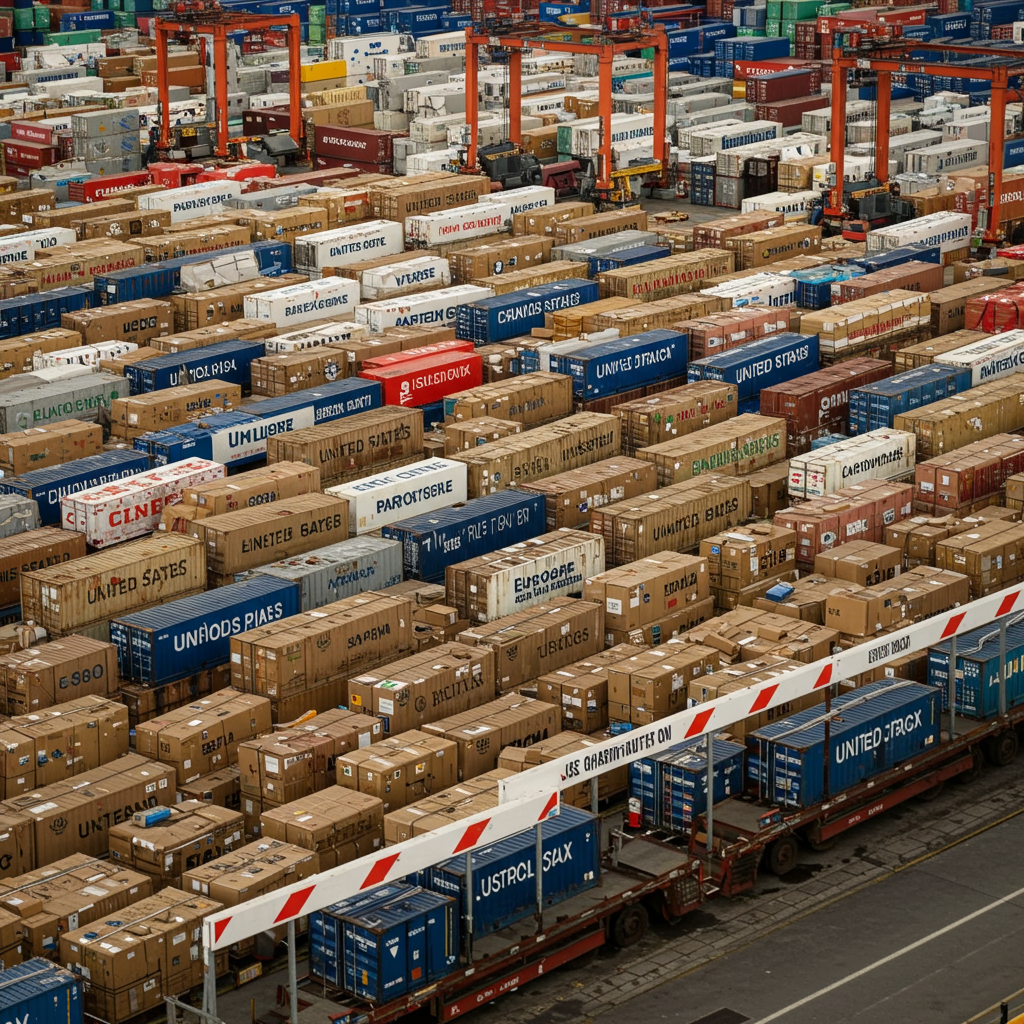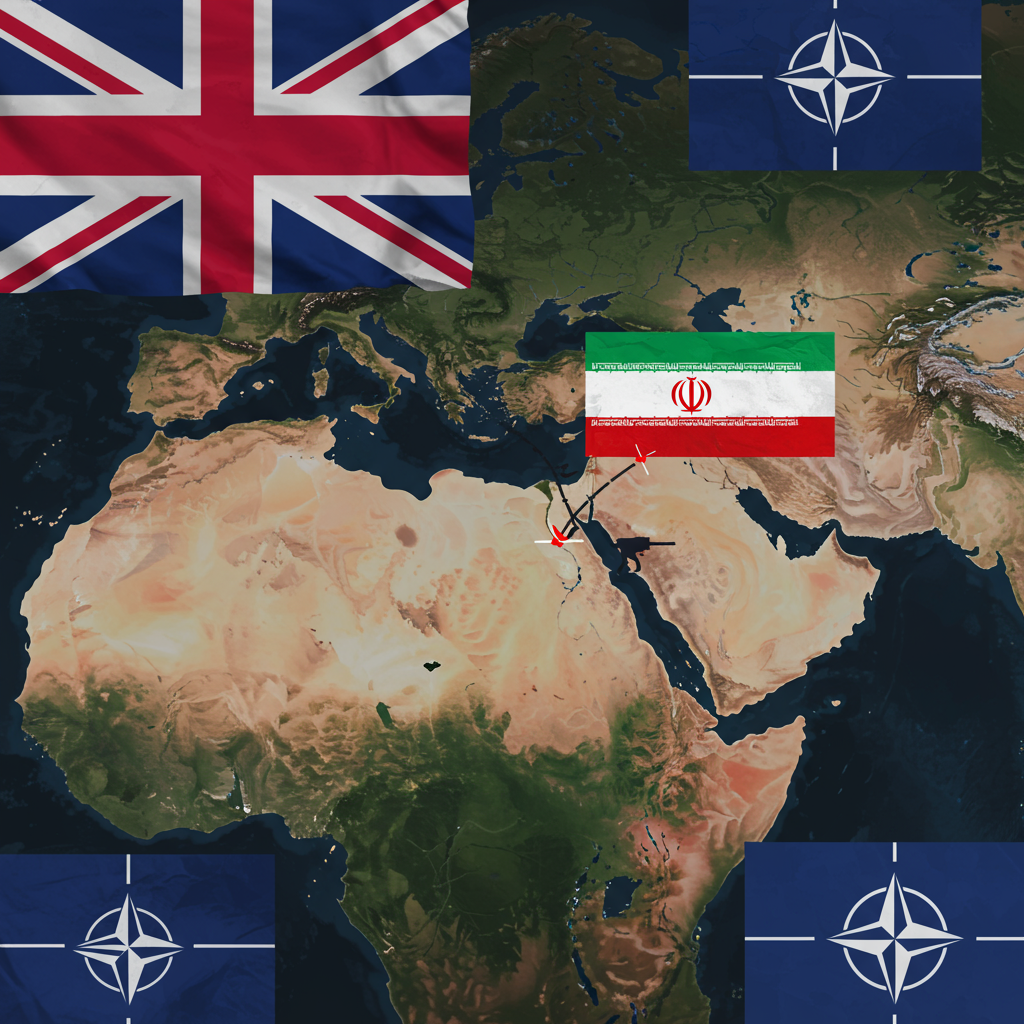A significant shake-up in international shipping has begun, with postal services across Europe and India announcing immediate or imminent suspensions of most package shipments to the United States. This drastic move stems from newly implemented U.S. import tariffs and a perplexing lack of clarity surrounding their collection and enforcement. Businesses and consumers worldwide are now grappling with disrupted supply chains, delayed deliveries, and uncertainty over the future of cross-border e-commerce.
The core of this logistical crisis lies in a recent decree signed by former President Donald Trump. This order targets international goods previously exempt from U.S. tariffs, specifically those valued under $800. As of August 29, these items will no longer enter the U.S. duty-free. Separately, a trade framework agreed upon last month between the U.S. and the European Union introduced a 15% tariff on a vast majority of products shipped from the EU. The combined effect has thrown the global postal system into disarray, as operators struggle to comply with ill-defined regulations.
The End of the “De Minimis” Exemption and New Tariffs
For years, the “de minimis” exemption allowed countless low-value packages to enter the U.S. without incurring duties. This facilitated a massive volume of international trade and personal shipments. In 2024 alone, U.S. Customs and Border Patrol Agency data shows that 1.36 billion packages, collectively valued at $64.6 billion, utilized this duty-free pathway. The impending expiration of this crucial exemption is a primary catalyst for the current shipping halt.
Beyond the general shift, specific new tariffs add complexity. Products originating from the European Union will face a 15% duty, a direct outcome of the new U.S.-EU trade framework. For items shipped from the United Kingdom, those exceeding $100 in value, including gifts, will now incur a 10% duty. Crucially, certain items like letters, documents, and gift items valued under $100 are largely expected to remain exempt from these new charges, offering a glimmer of continuity amid the widespread suspensions.
A Cascade of Suspensions: Who, When, and Why
The reaction from global postal operators has been swift and decisive, leading to a staggered series of service suspensions. This operational pause is a direct consequence of the lack of robust systems and clear instructions from U.S. authorities on how to implement the new duties. Many operators simply cannot guarantee that packages will clear U.S. customs before the August 29 deadline, making a temporary halt the only viable option.
European Postal Giants Lead the Halt
Several major European postal services were among the first to announce suspensions, creating immediate impacts for shippers. On Saturday, August 23, postal services in Germany, Denmark, Sweden, and Italy began suspending most merchandise shipments to the U.S. Deutsche Post and DHL Parcel Germany confirmed they could no longer accept and transport parcels containing goods from business customers. Similar announcements came from Postnord, the Nordic logistics company, and Italy’s Poste Italiane, which explicitly stated that only mail without merchandise would continue to be accepted.
The ripple effect continued into the week. France and Austria were slated to implement their suspensions on Monday, August 25. Austrian Post confirmed that Tuesday, August 26, would be its final day for accepting commercial shipments bound for the U.S., including Puerto Rico. The United Kingdom’s Royal Mail also announced a halt to U.S. shipments effective Tuesday, strategically timed to ensure any remaining accepted packages would arrive before the new duties kick in. These coordinated suspensions highlight the systemic nature of the problem, indicating a shared frustration over the new, unclear regulations.
India Joins the Suspension Wave
Mirroring the European response, the Indian government also declared a temporary suspension of postal deliveries to the United States. This measure, effective from Monday, August 25, includes exceptions for letters, documents, and gift items valued up to $100. India’s communications ministry pointed to specific technical and administrative hurdles. They noted that while the new executive order mandates transport carriers or “qualified parties” to collect and remit tariff duties, the critical processes for designating these “qualified parties” and establishing mechanisms for duty collection remain entirely undefined.
This ambiguity has practical consequences. U.S.-bound air carriers, citing a “lack of operational and technical readiness,” have expressed their inability to accept postal consignments after August 25. This underscores a fundamental breakdown in the necessary infrastructure for implementing the new tariff regime, affecting global postal networks beyond just Europe.
The Unresolved Questions: Why This Disruption?
The widespread postal suspensions are not merely a reaction to new tariffs; they are a protest against the absence of a functional system to manage them. Postal operators repeatedly cite a profound lack of clarity and preparedness on the U.S. side as the primary driver of this disruption.
As DHL, Europe’s largest shipping provider, articulated, “key questions remain unresolved.” These include fundamental issues such as:
How and by whom will customs duties be collected?
What additional data will be required for shipments?
- How will this data be transmitted to U.S. Customs and Border Protection?
- www.cbsnews.com
- apnews.com
- www.scmp.com
- english.aawsat.com
- kdhnews.com
The Netherlands’ PostNL spokesperson, Wout Witteveen, starkly highlighted that the Trump administration is pushing ahead with these new duties despite U.S. authorities currently lacking a functional system to collect them. France’s national postal service, La Poste, echoed this sentiment, stating that the U.S. failed to provide sufficient details or adequate time for European postal services to reorganize their operations and implement necessary computer system updates to comply with the new procedures. Björn Bergman, head of PostNord’s Group Brand and Communication, described the pause as “unfortunate but necessary” to ensure regulatory compliance.
Impact on Consumers & Businesses: What You Need to Know
This sudden and sweeping change has significant ramifications for a broad spectrum of users. E-commerce businesses that rely on cost-effective international postal services for shipping goods to the U.S. will face immediate challenges. Small businesses, in particular, may struggle to absorb increased shipping costs or find viable alternative carriers. Consumers sending personal packages or gifts to the U.S. will also experience delays or be forced to seek more expensive shipping options.
While national postal services are halting operations, some private express carriers like DHL Express reportedly remain operational. However, these services typically come at a higher cost, which may not be feasible for all shipments. This situation creates a two-tiered system where those willing and able to pay a premium can still send packages, while others are left without options.
A Looming Wider Crisis? The PostEurop Warning
The situation remains fluid, with the potential for an even broader impact. PostEurop, an influential association representing 51 public postal operators across Europe, has issued a stark warning. The organization indicated that if a comprehensive solution is not found by August 29 – the day the new duties officially take effect – all its members are likely to follow suit in suspending shipments to the U.S. This would represent a near-total halt to postal package traffic from the entire European continent to the United States, exacerbating an already challenging global trade environment. The urgency for a resolution is paramount to prevent widespread and prolonged disruption.
Frequently Asked Questions
What exactly caused these postal services to suspend shipments to the U.S.?
The suspensions are primarily caused by new U.S. import duties, effective August 29, which will subject international goods valued under $800 to tariffs. This change, stemming from a Trump decree and a new U.S.-EU trade framework, ends a longstanding “de minimis” exemption. However, the immediate trigger for the halt is the profound lack of clarity and operational readiness from U.S. authorities regarding how these new duties will be collected, what data is required, and who is responsible for their remittance. Postal services cannot guarantee compliance or timely delivery under these undefined conditions.
Which specific European countries and postal services are affected by these suspensions?
Several European countries and their postal services have suspended or are planning to suspend most merchandise shipments to the U.S. These include Germany (Deutsche Post, DHL Parcel Germany), Denmark (Postnord), Sweden (Postnord), Italy (Poste Italiane), France (La Poste), Austria (Austrian Post), and the United Kingdom (Royal Mail). The Netherlands’ PostNL also expressed concerns. India’s government and postal services have also implemented a similar temporary suspension. Mail shipments not containing merchandise, and gifts under $100, are generally exempt from these halts.
Are there any alternatives for shipping packages from Europe or India to the U.S. right now?
Yes, while national postal services are suspending most package shipments, some private express carriers, such as DHL Express, reportedly remain operational. These services typically offer faster and more reliable delivery with robust tracking, but they often come at a significantly higher cost compared to standard postal services. Senders are advised to contact private couriers directly for current service availability and pricing, and to consider the urgency and value of their package when deciding on an alternative shipping method.
The ongoing disruption to global parcel shipments to the U.S. highlights a critical interface between trade policy and practical logistics. While the intent behind the new tariffs may be to rebalance trade, the lack of a clear, functional implementation mechanism has created an unprecedented level of uncertainty and operational paralysis. Businesses, individuals, and governments on both sides of the Atlantic are now anxiously awaiting a resolution that brings much-needed clarity to this complex and rapidly evolving situation. The ability to smoothly ship packages across borders is a cornerstone of modern commerce, and its disruption carries far-reaching consequences.




